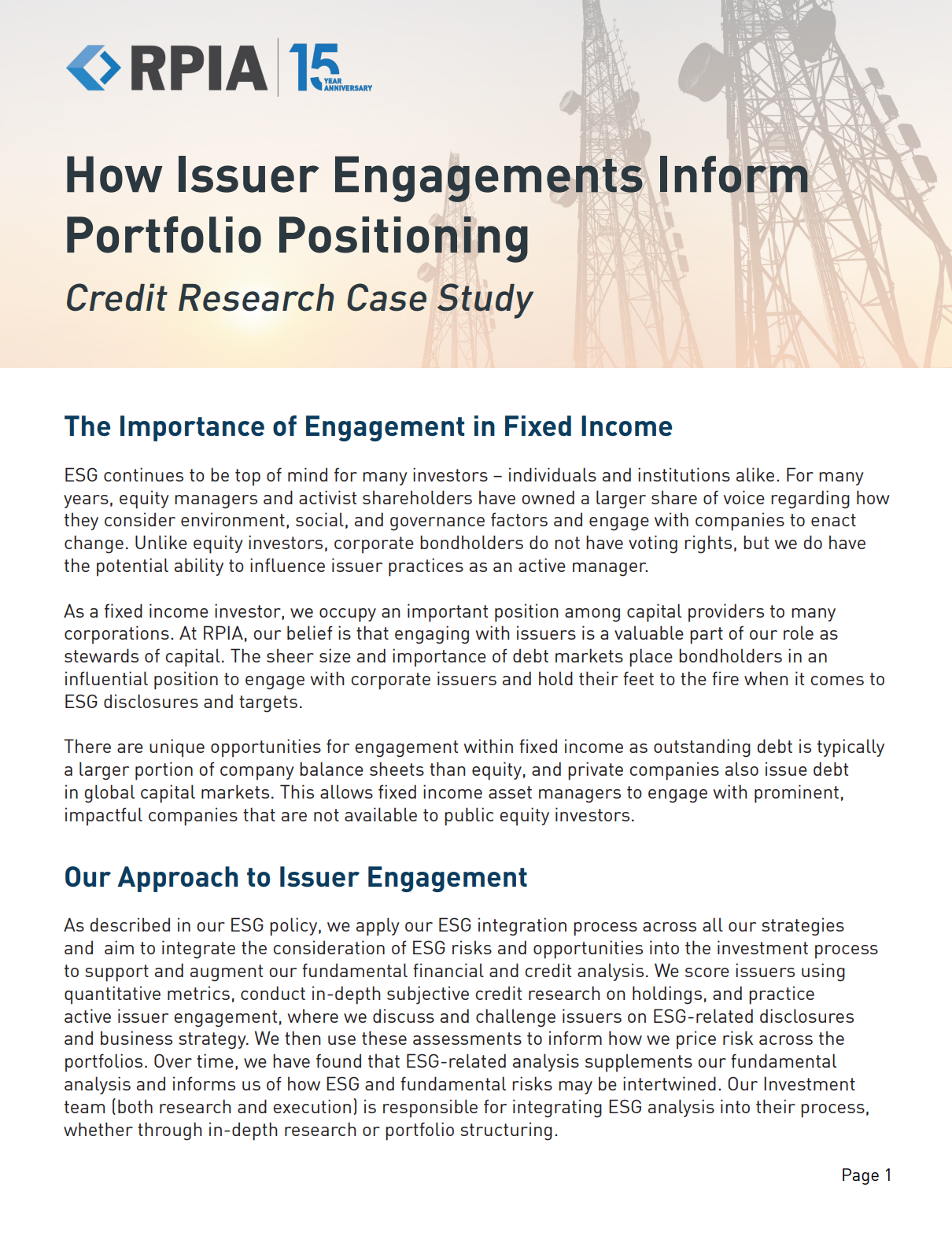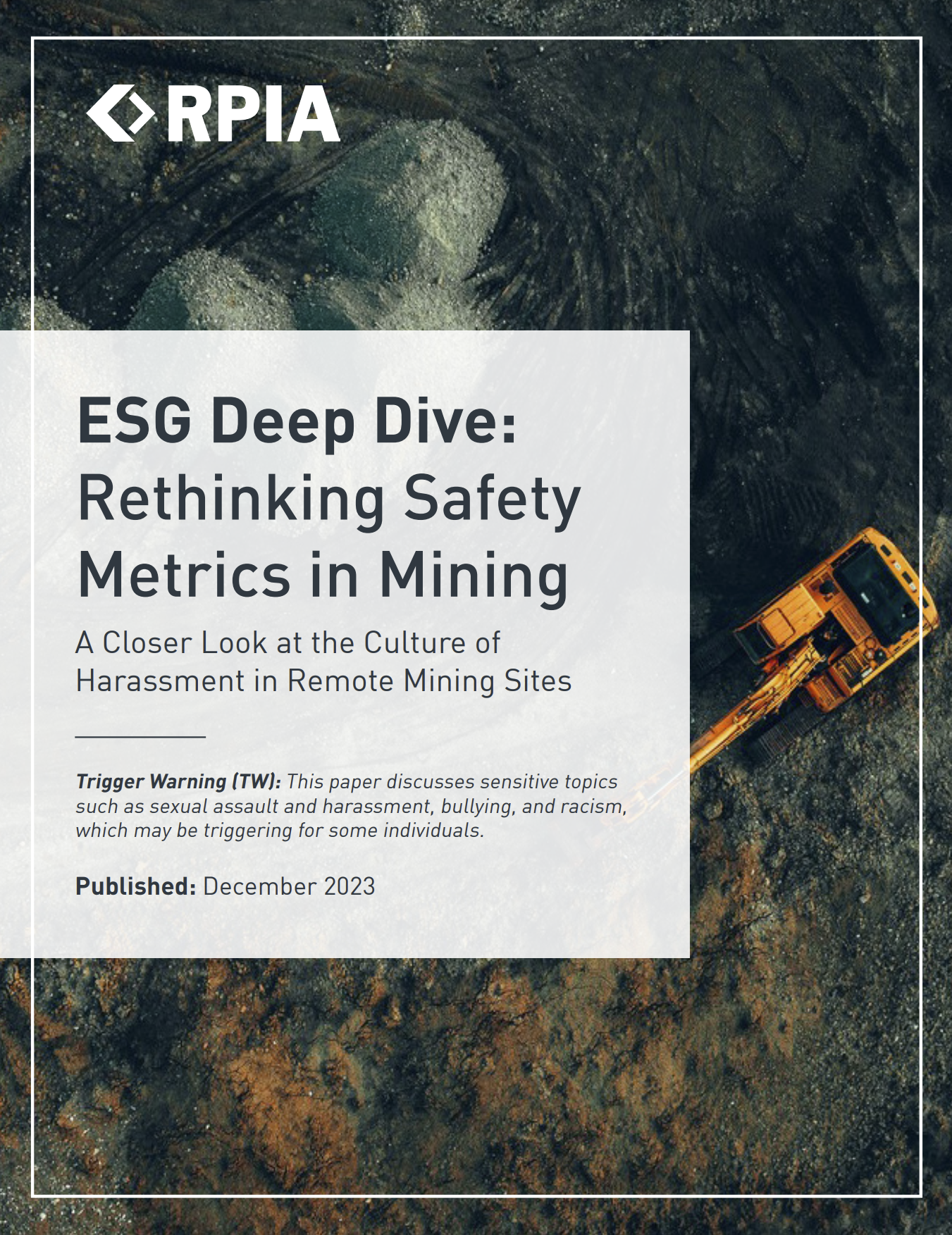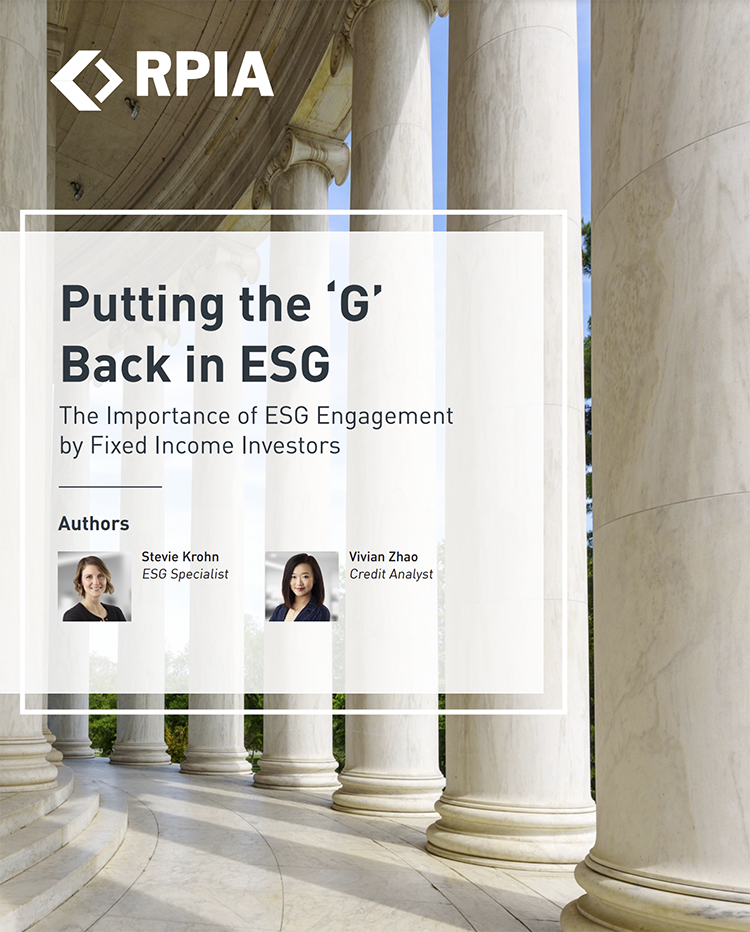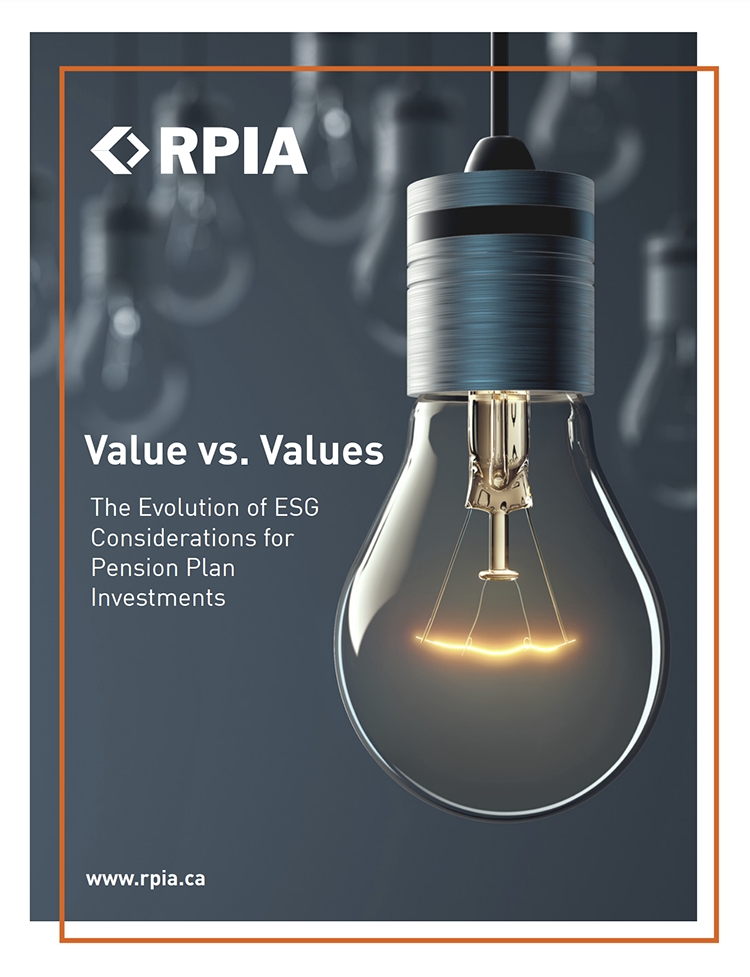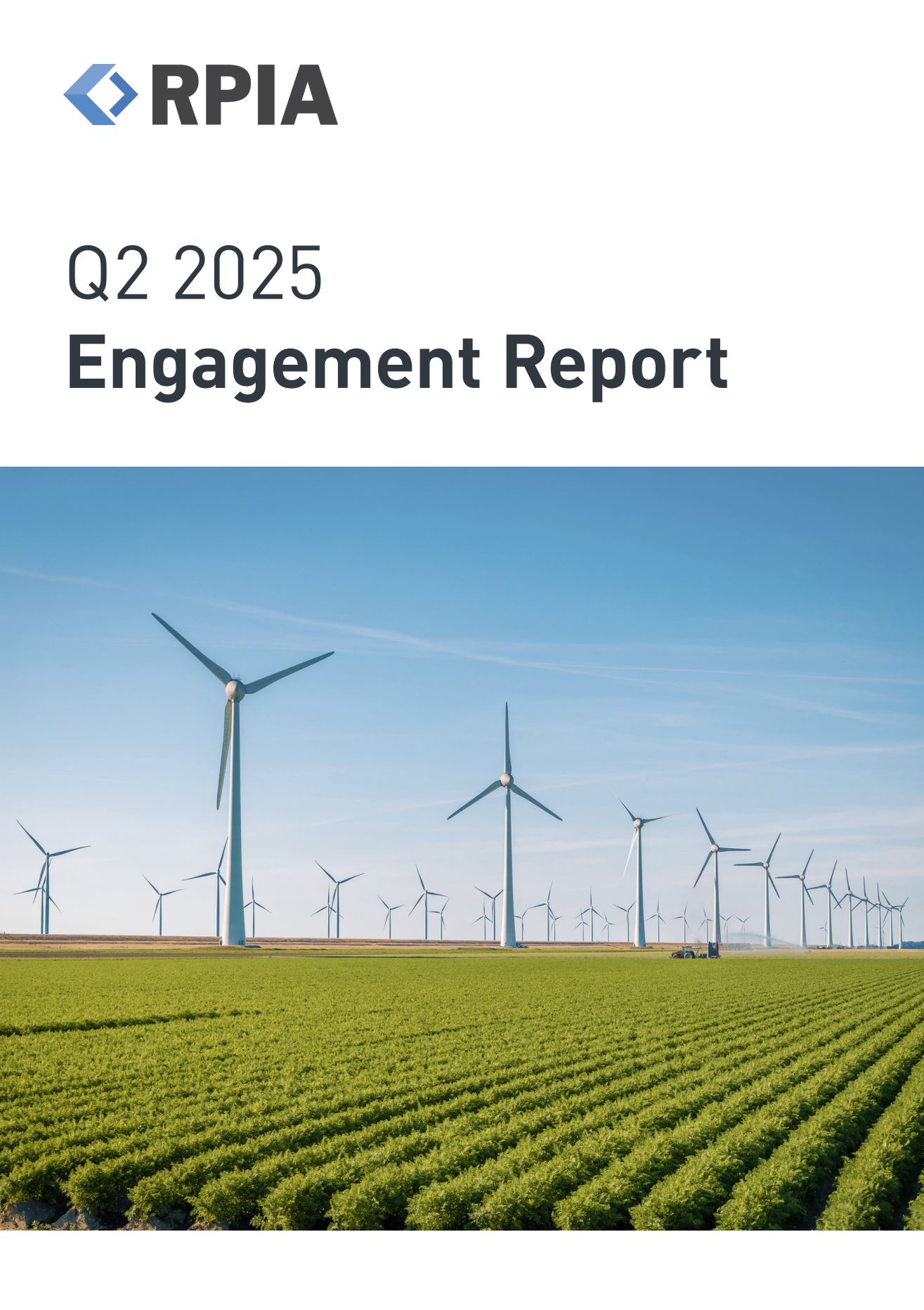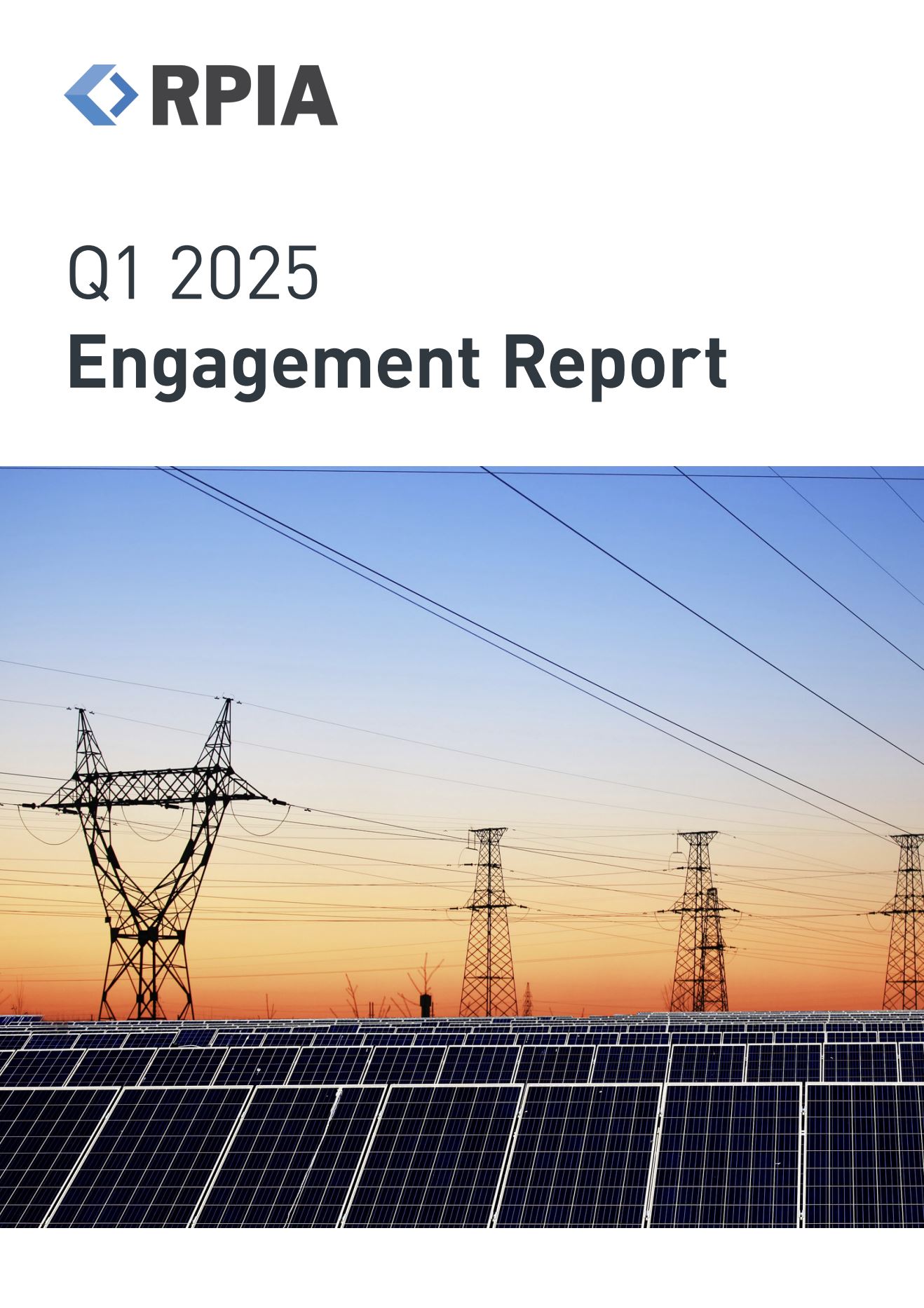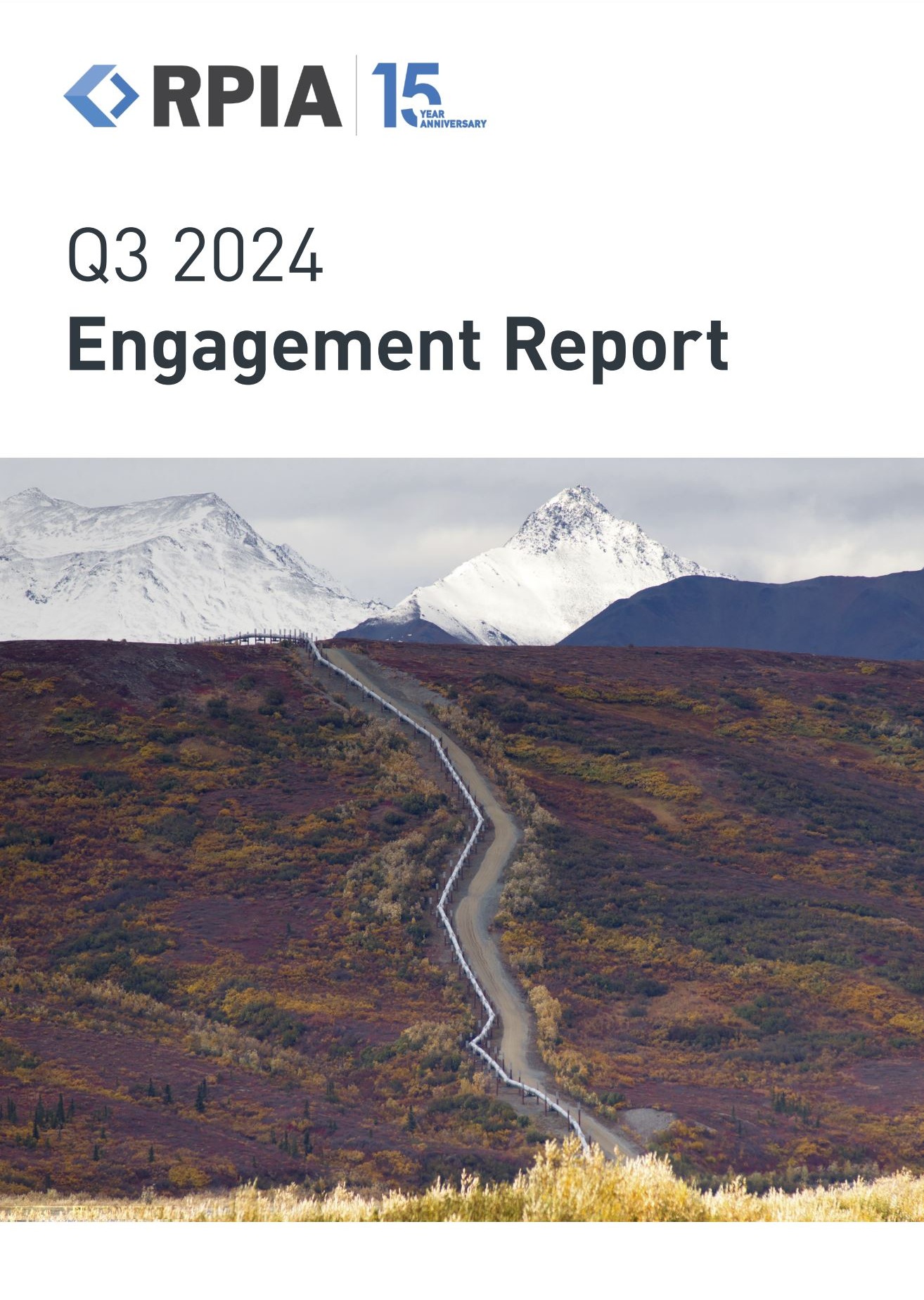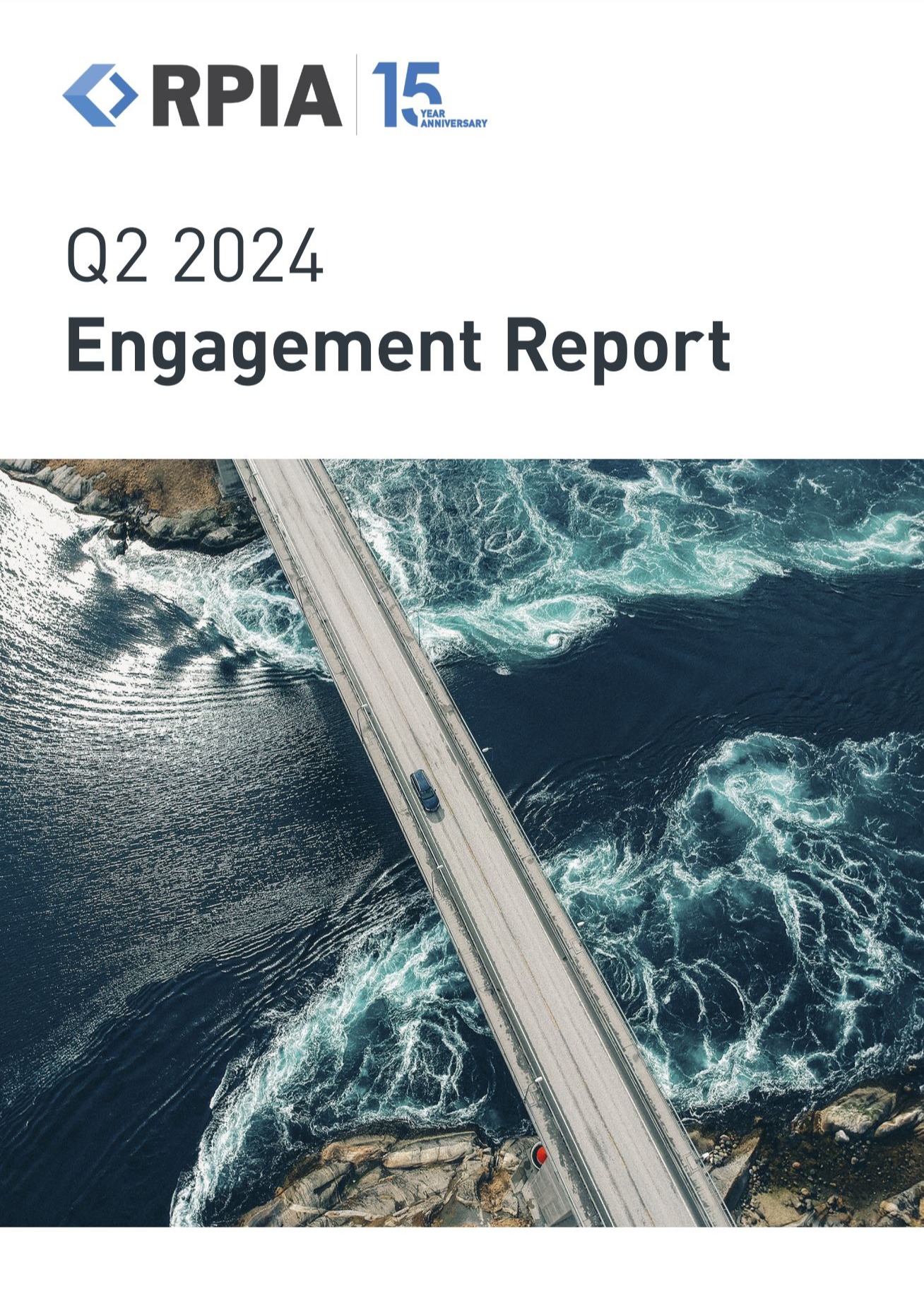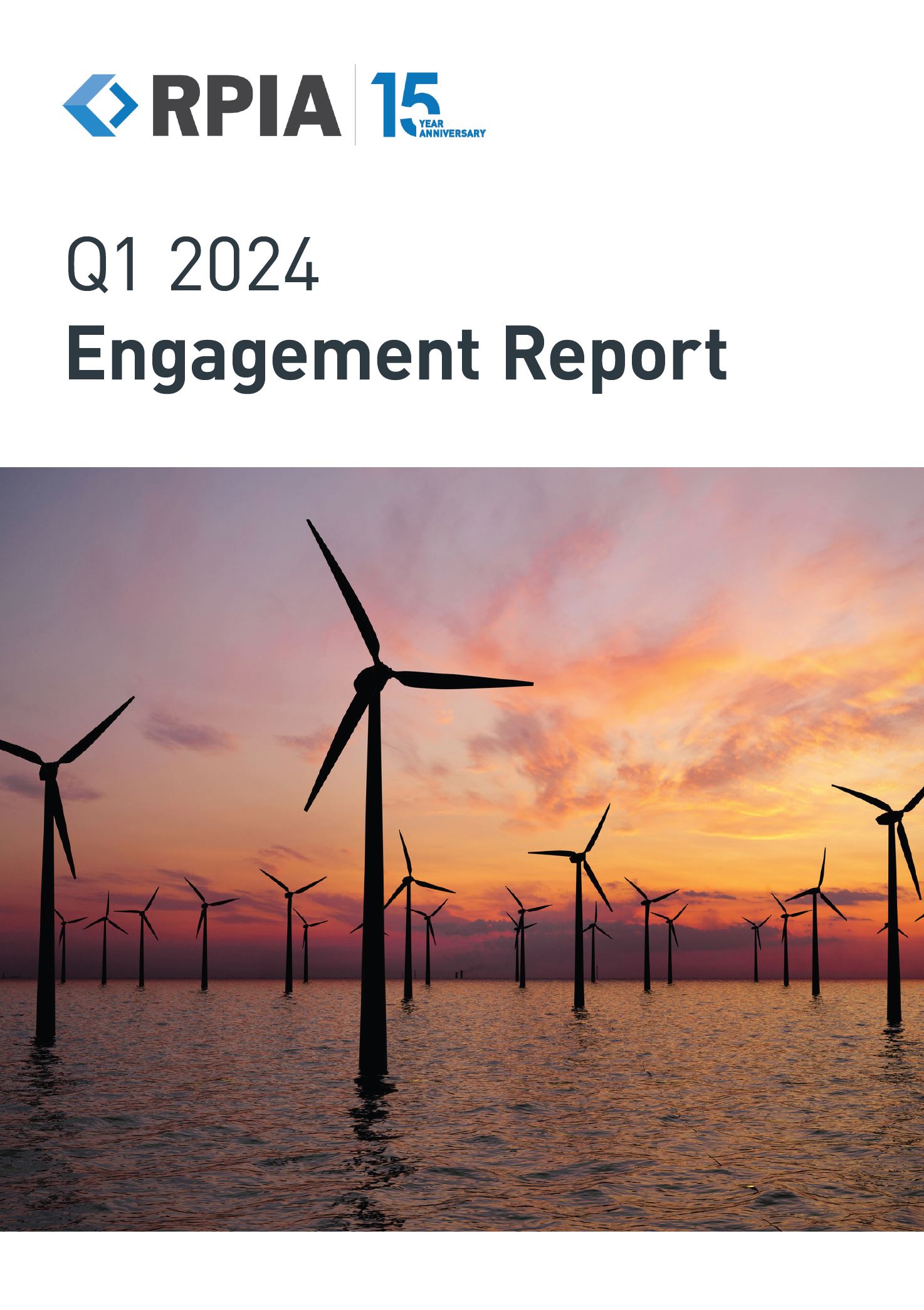RPIA ESG Policy
We consider Environmental, Social and Governance (“ESG”) factors when making investment decisions for all the strategies we manage. When we include these factors alongside traditional financial metrics, we are able to think more broadly about risk, and make more prudent investment decisions. In other words, it is in the best interests of our clients to integrate ESG into our process.
Through our in-depth credit research, RPIA is in regular communication with the management teams of the issuers in which we invest. We use this platform as a way to champion ESG analysis, discussing with companies the importance of ESG-related disclosures and the risks that we see from an ESG perspective.
Nuclear is the New Green
Combating Emerging Water Shortage Risks
Announcing TAF’s Impact Investment in Our Fossil Fuel Exclusion Strategy
ESG Trends: Swapping debt for sustainability-linked financing

UN Principles for Responsible Investing
As a signatory of the internationally-recognized United Nations Principles for Responsible Investment (UN PRI), organizations can publicly demonstrate their commitment to responsible investment and place it at the heart of a global community seeking to build a more sustainable financial system.

FSB Task Force on Climate-related Financial Disclosures
The FSB Task Force on Climate-related Financial Disclosures (TCFD) aims to help companies understand what financial markets want from disclosures to measure and respond to climate change risks and encourage firms to align their disclosures with investors’ needs.

30% Club
The 30% Club’s mission is to reach at least 30% of representation of all women on all boards and C-suites. Business leadership is vital to the mission, taking the issue beyond a specialist diversity effort and integrating it into enterprise-wide strategy development.

United Way ILEO Charter
The United Way Inclusive Local Economic Opportunity (ILEO) Charter is committed to increasing economic opportunity that is shared and inclusive. We will take action to address growing economic disparity, which is one of the biggest challenges of our time.

Canadian Coalition for Good Governance
The Canadian Coalition for Good Governance (CCGG) promotes good governance practices in Canadian public companies and the improvement of the regulatory environment to best align the interests of boards and management with those of their shareholders, and to promote the efficiency and effectiveness of the Canadian capital markets.

The Sustainability Accounting Standards Board
The Sustainability Accounting Standards Board (SASB) is a non-profit organization founded in 2011 that sets financial reporting standards and develops and disseminates sustainability accounting standards. As a member, we can partake in the organization's mission to help businesses around the world identify, manage, and report on the sustainability topics that matter most to their investors.

Climate Engagement Canada
Climate Engagement Canada (CEC) is a finance-led initiative that drives dialogue between finance and industry to promote a just transition to a net-zero economy. As a participant, we can be a part of CEC engagement activities that can help align Canada’s financial system with a low-carbon future.
Leveraging Our ESG Focus Through Targeted Portfolios
As we advance our ESG integration process, we explore opportunities to design targeted ESG portfolios, expanding on our carbon-reduced mandate. Targeted portfolios would have a specific ESG focus built around quantifiable and impactful factors. These future solutions may include issuers we believe are leaders in addressing certain ESG factors or may focus on companies exhibiting improvement in their ESG risk profiles. We continue to manage our existing Targeted Portfolio, the RP Broad Corporate Bond (Fossil Fuel Exclusion) strategy. This strategy has a dual mandate of producing 100 bps per annum of excess return above the index while maintaining a carbon intensity that is lower than that of the carbon-reduced index.

2024 Sustainability Report

Sustainability at RPIA in 2024
At RPIA, we are committed to working closely with our investors to leverage our expertise in pursuit of their investment goals. We take pride in our ongoing partnerships with clients to develop sustainable investment solutions that align with their objectives.
In 2024, as we celebrated our firm’s 15-year anniversary, we reflected on our purpose and the progress we have made alongside our clients. As global fixed-income experts and stewards of our investors’ capital, we recognize that Environmental, Social, and Governance (ESG) factors play a critical role in shaping the risk and return profile of corporate fixed-income securities. By integrating ESG considerations into our fundamental and credit analysis, we aim to manage downside risk while identifying new opportunities to create long-term value for investors.
Over the past year, we have continued to strengthen our commitment to sustainability – both as an investment manager and as an employer. Our 2024 Sustainability Report highlights how we embed ESG considerations across three key focus areas:
- Corporate Sustainability efforts regarding governance, climate, and industry commitments
- ESG Integration across our investment process, our engagement activities, and our portfolio offerings
- Firm Culture and Values that drive how we support our employees, empower women, and give back to our community
In addition to our 2024 Sustainability Report linked above, our 2024 TCFD Report provides additional detail on our sustainability commitments.
UN PRI Assessment 2024
As a UN PRI signatory, RPIA believes that applying the six Principles better aligns our process with generating long-term stable returns for our investors. Most importantly, we believe it makes us better stewards of our investors’ capital. UN PRI provides an assessment framework for which an investor can benchmark its responsible investing practices. In 2024, RPIA received four out of five stars in all three modules, earning scores higher than the median in the Policy Governance and Strategy and Direct - Fixed Income - Corporate modules.
| Module | RPIA Star Score | RPIA Module Score | Module Median |
|---|---|---|---|
| Policy Governance and Strategy | 78 | 61 | |
| Direct - Fixed Income - Corporate | 89 | 67 | |
| Confidence Building Measures | 80 | 80 |
RPIA is a signatory of the UN Principles for Responsible Investment and as part of our commitment, we consider Environmental, Social & Governance (“ESG”) factors as part of our firm-level activities, including our investment process. ESG factors are important considerations in our investment management process but is supplemental to our primary financial and credit research and analysis functions.
ESG factors that may be considered as part of our investment process include matters relating to climate change, energy use, energy efficiency, emissions, waste, pollution, matters related to human rights, impact on local communities, labour practices, employee working conditions, health and safety of the employees and affiliates, employee relations and diversity, executive compensation, bribery and corruption, board independence, board composition and diversity, alignment of interest between the shareholders and the executives, shareholder rights, and companies’ policies relating to ESG.
ESG integration, including components relating to issuer engagement, is a firm-wide investment approach but the weight and importance of it in our investment management process can vary across the investment funds we manage. Always refer to the relevant fund offering documents for important information on the investment objectives, strategies and associated risks of a particular fund. The consideration and implementation of ESG factors are also subject to RPIA’s internal investment and risk management policies and may be revised as a result of investment suitability requirements, current portfolio positioning and external market and economic factors.
The consideration of ESG factors in the investment process for RP Strategic Income Plus Fund, RP Alternative Global Bond Fund, RP Alternative Credit Opportunities Fund, RP Target 2026 Discount Bond Fund, and RP Target 2028 Discount Bond Fund is weighted less than the core financial and credit analysis employed in the management of these funds. Please see the simplified prospectus for additional information.




